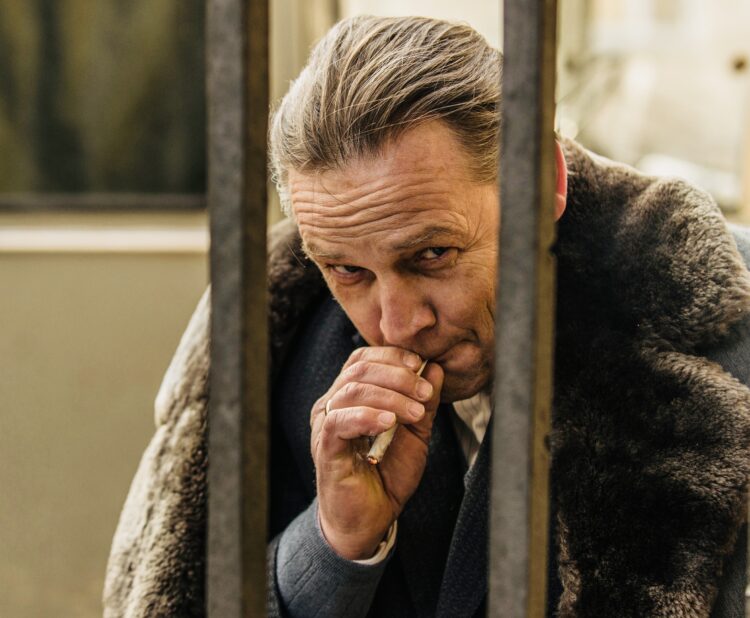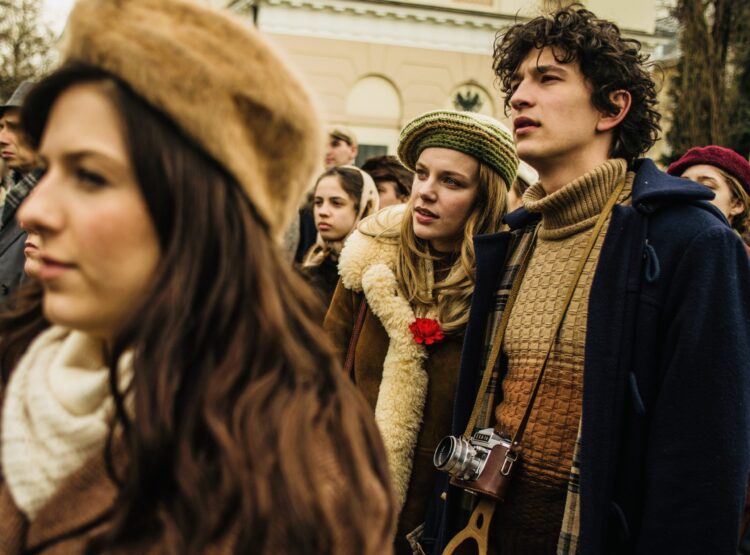Krzysztof Lang’s stand-alone movie, March 1968, has been lengthened and converted into The End of Innocence, a powerful four-part series that starts on the ChaiFlicks streaming platform on September 12.
It focuses on an exceedingly dark chapter in contemporary Polish history during which upwards of 30,000 highly assimilated secular Jews were forced to flee the country they loved.
This turbulent and tragic period unfolded in 1967 and 1968, when Poland was a subservient Soviet client state. Jews, having been accused of applauding Israel’s victory in the Six Day War, were tarred as Zionists. This was a serious accusation in light of the fact that the Soviet Union and its satellite states were staunchly pro-Arab and had armed Arab armies that had been decisively defeated by Israel.
Jews who had displayed even the slightest pro-Israel sympathy were sacked from their jobs during the orchestrated antisemitic campaign, leaving them bitter and demoralized. Having been demeaned and marginalized, many Jews emigrated.
These events took place during an ideological struggle within the Communist Party and a period of student unrest at Warsaw University.
The End of Innocence, a strong and empathetic production, unfolds in four episodes, each of which is about 45 minutes in length.

The main characters, Hanna Bielski (Vanessa Aleksander) and Janek Wolicki (Ignacy Liss), are university students and lovers and hail from diametrically different backgrounds. Hanna’s Jewish father, Jerzy, is a physician who has been fired from his position as chief surgeon in a Warsaw hospital. Janek’s Catholic father, Roman (Ireneusz Czop), is a colonel in the Ministry of Internal Affairs.

The Polish actors who portray these characters deliver uniformly superb performances.
In the first segment of this absorbing series, the Polish-Israel Friendship Society is due to be dissolved and Roman finds an “incriminating” file about Jerzy (Mariusz Bonaszewski). Born as Aron Gutman, he Polonized his name to Bielski. By any standard, he is thoroughly Polish culturally and in spirit. More over, he and his Catholic wife’s daughter, Hanna, is a poster girl for blonde and blue-eyed Polish feminine beauty.
For all intents and purposes, they are Poles to their fingernails. But to the xenophobic and racist Polish regime and its supporters, they are suspect as Poles. In this respect, the film is filled with references to the snide and crude antisemitism that afflicted Jews.
At a New Year’s party ushering in 1968, a woman disparagingly calls a certain Jewish person a “yid.” Another woman, invoking an old stereotype, counters that Jews have “a head for business.”
As the anti-Jewish crackdown gathers momentum, Hanna’s clear-eyed mother, Julia (Edyta Olszowka) expresses a desire to leave Poland. Her husband remains hopeful that the situation will calm down and improve.
Janek, a liberal, confronts his father and pointedly asks why “these people” are being persecuted. As time goes on, their relationship deteriorates. At one point, they get into a nasty physical altercation, with Janek exclaiming, “I’m not like you!”

In the meantime, university students are in a rebellious mood. Demanding “culture without censorship,” they call for the restoration of a student play by the national poet Adam Mickewicz that the authorities have deemed subversive and shut down.
Hanna and Janek participate in these anti government demonstrations, a challenge the government cannot ignore. During a street protest, Janek is beaten and arrested and Hanna is detained. The clashes between the protesters and the police are cleverly juxtaposed against black-and-white file footage from that era.
Several of the protest leaders, including Adam Michnik, are Jewish. This is enough to stir up antisemites. As the editor of a state-supported newspaper contemptuously says, “The sons and daughters of prominent Jews gorge on bananas and oranges that regular Poles can only dream of.”

With tensions escalating, manifestations of antisemitism are on the rise. Much to his horror, Jerzy finds that a white Star of David has been scrawled on his apartment door. More seriously, the secretary-general of the Polish Communist Party, Wladyslaw Gomulka, delivers a scathing speech laced with antisemitic insinuations.
“The students who participated actively in recent events were of Jewish descent or nationality,” he thunders at a rally. “The parents of these students hold more or less prominent positions but also senior posts in our state. It is beyond any doubt that this category of Jews, Polish citizens, is neither emotionally nor mentally tied to Poland but to the state of Israel. I suppose this category of Jews will leave our country sooner or later.”
As he finishes his incendiary speech, Hanna’s mother is desperate to emigrate. Hanna, however, wants to stay. She soon discovers that the matter has been settled.
And in a scene that underscores the precarious status of Jews in Poland, a union leader bellows, “We demand that the Zionist reactionaries and cosmopolitans be removed from the party and state administration.”
The die has been cast. Jews in Poland are doomed.
The End of Innocence pulls no punches in chronicling this human tragedy.
